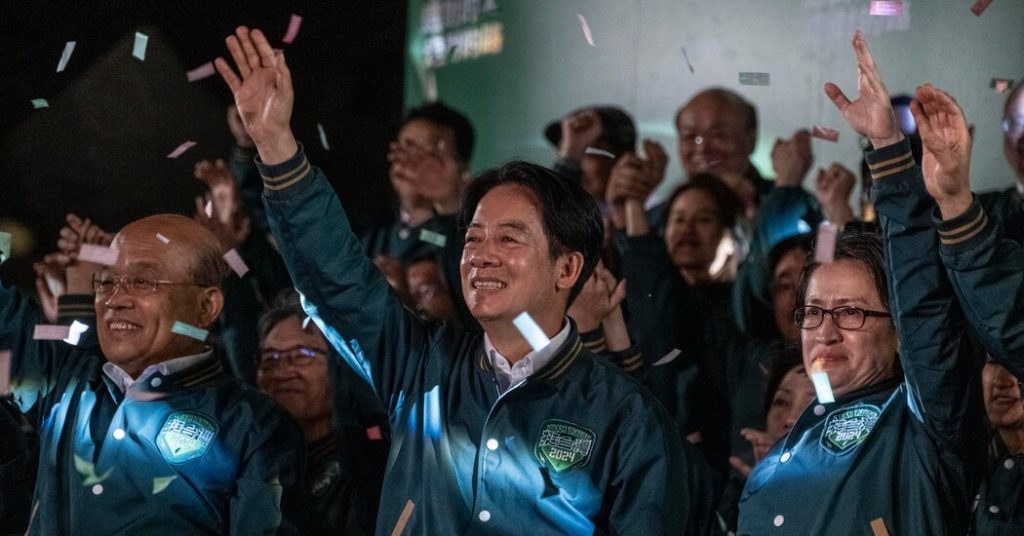Taiwan’s new president, Lai Ching-te, faces challenges in securing the island’s democracy amidst global turmoil. He aims to strengthen ties with Western partners, resist Beijing’s threats, and enhance Taiwan’s defenses while potentially extending an olive branch to China. However, Lai must navigate internal divisions and opposition parties that have gained influence in the legislature, posing challenges not faced by his predecessor, Tsai Ing-wen.
The international environment in 2024 presents even greater challenges for Lai than in 2016 when Tsai took office, with ongoing wars in Ukraine and the Middle East, strained U.S.-China relations, and China’s efforts to weaken alliances against it. Beijing has expressed dislike for Lai, potentially increasing military and trade pressure on Taiwan. Despite Beijing’s view of Lai as a threat to Chinese interests, officials around him are confident that U.S. support and resolve to defend democracy serve as a deterrent against Beijing’s aggressive behavior.
There is debate in Taiwan about the extent of U.S. military support, given ongoing conflicts in Ukraine and Israel-Gaza. Taiwan’s $20 billion backlog of undelivered orders of arms and military equipment from the U.S. raises concerns about the island’s preparedness for any potential confrontation with China. Lai’s opponents worry that his approach risks isolating Taiwan from Beijing while leaving the island vulnerable to a conflict it is unprepared for.
Domestic political divisions in Taiwan were evident in a recent legislative session marked by physical altercations between lawmakers from rival parties. Despite this, an immediate confrontation with Beijing is unlikely as Xi Jinping seeks to stabilize relations with the U.S. and focus on China’s economic recovery. China has increased military and economic pressure on Taiwan, with moves such as sending coast guard ships near Taiwanese-controlled islands to intimidate without risking direct conflict.
Lai may attempt to ease tensions with Beijing through reassuring language in his inaugural speech, emphasizing his commitment to Taiwan’s constitution and Republic of China status. However, skepticism remains among some experts regarding the possibility of significant improvements in cross-strait relations. Mr. Xi’s desire for progress on unification conflicts with Taiwan’s stance, creating a challenging situation for Lai in managing relations with China while protecting Taiwan’s interests and sovereignty.













